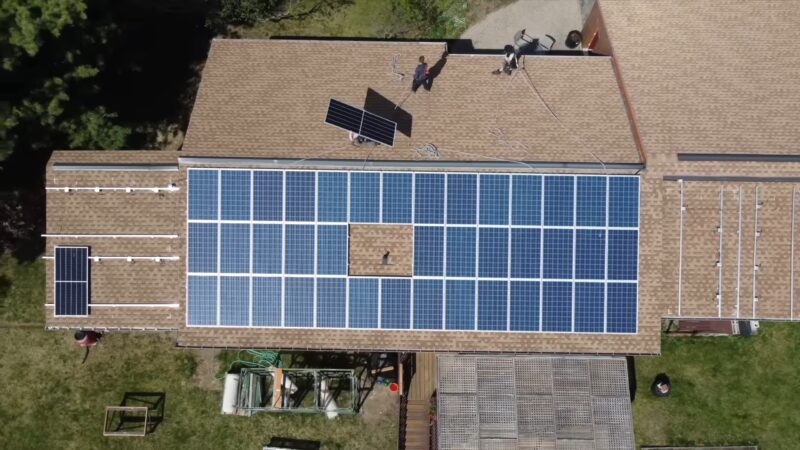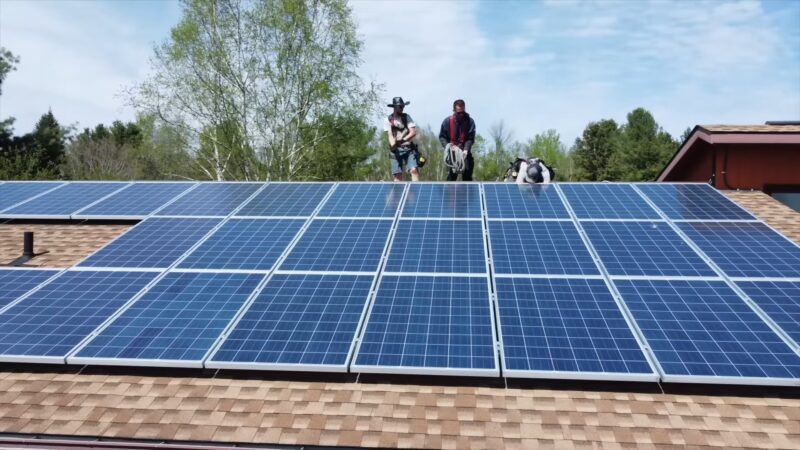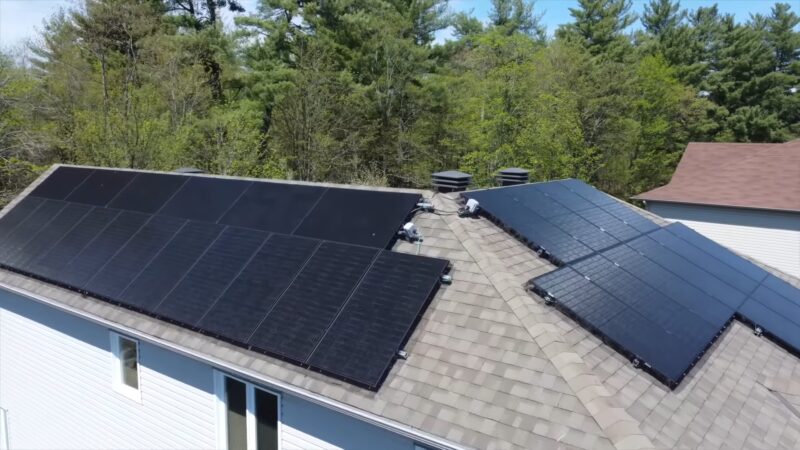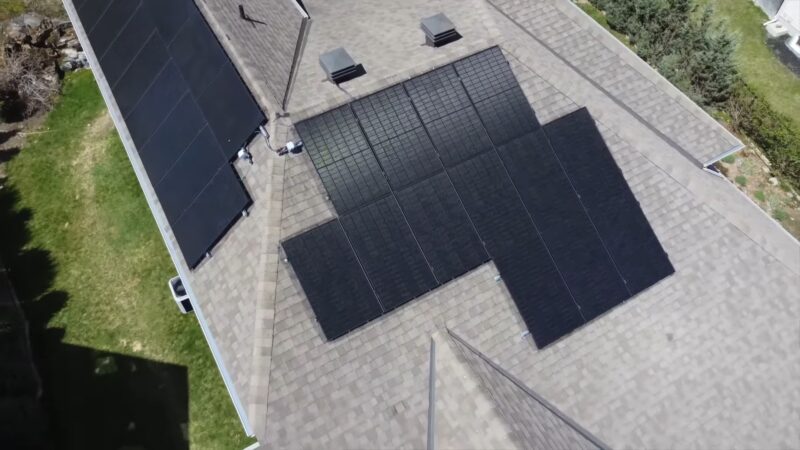Residential solar panel systems are a groundbreaking way for homeowners to generate their own electricity using the sun’s energy. These systems consist of solar panels, an inverter, a battery, and other necessary components to convert sunlight into electricity.
When it comes to the battery, it is a crucial component and can serve as a backup in case of sudden drops in power. A great solution is to use one that is connected to both solar panels and standard electricity grid. If you are interested in buying such a system, check out EcoFlow.
Moreover, the goal should be to make a whole system energy-efficient. The only way to ensure that is to install the right combination of panels suitable to your needs. In this article, we will discuss more about the right selection of panel systems and other important details.
How to Choose the Right System?

Choosing the right solar panels is a crucial decision for homeowners considering a move to solar energy. This decision impacts not only the effectiveness of your solar energy system but also its long-term reliability and cost-effectiveness. Here are the most important tips.
Efficiency
Higher-efficiency panels produce more power per square foot, which is beneficial for homes with limited roof space. Look for panels with an efficiency rating of around 15% to 20%.
Compare Different Types
There are three main types of solar panels: monocrystalline, polycrystalline, and thin-film.
- Monocrystalline panels, made from a single crystal structure, are typically more efficient and more expensive.
- Polycrystalline panels, made from multiple crystal fragments melted together, are slightly less efficient but more affordable.
- Thin-film panels are the least efficient but are flexible and aesthetically pleasing. Your choice will depend on your budget, space, and aesthetic preferences.
Ensure the Right Quality
Quality is not always directly related to efficiency. High-quality panels are more durable and have a longer lifespan. Check for certifications from international standards organizations like the International Electrotechnical Commission (IEC).
Durability and Warranty
Look for panels that can withstand heavy loads, high winds, and snow. Additionally, a long-term warranty (typically around 25 years) is a good indicator of the manufacturer’s confidence in their product.
Size and Appearance
Some homeowners prefer sleek, all-black panels for a more uniform appearance, while others might prioritize size or shape to fit their available roof space.
Cost vs. Value
While it’s tempting to go for the cheapest option, it’s important to consider the long-term value. More expensive panels might offer better efficiency, durability, and warranties, leading to greater savings over time.
Learn More About the Installation Process

Even though you don’t essentially need these skills since you can simply hire an expert, learning more about the whole process will help you make a better plan and get the most out of this solution. Here are the most important steps.
Site Assessment
A professional will evaluate your property to ensure it’s suitable for solar panel installation. This assessment includes checking the roof’s condition, orientation, and shading from trees or other structures.
Design and Planning
Based on the site assessment, a system design is created to maximize energy production. This plan will also outline the system’s size and layout on your roof.
Get a Permit
Before installation begins, you’ll need to obtain necessary permits from your local government. This step ensures your solar panel system complies with local regulations and building codes.
Installation
Professional installers will set up the solar panels, inverter, and other components. They will also connect the system to your home’s electrical grid.
Inspection and Connection
After installation, an inspector from the local government or utility company will check the system. Once approved, it can be connected to the power grid.
Proper Maintenance is Also Important
Regular cleaning of the panels and an annual check by a professional are usually sufficient. Most modern systems also come with monitoring software, allowing you to track your energy production and consumption in real-time.
Keep in mind that this is the only way to ensure its profitability, efficiency, and prevention of additional expenses on repairs.
What Are the Main Benefits?
One of the main advantages that makes most people interested in this solution is the fact that it can save you a lot of money over time. When it comes to current models, an average one will repay itself after 5 to 10 years.
Also, with rapid development of technology, we expect to see an even bigger improvement in the future.
Many homeowners might be concerned about the upfront costs of solar panel installation. Fortunately, there are several financing options available, such as solar loans, leases, and power purchase agreements (PPAs). These options allow homeowners to benefit from solar energy without the need for a large initial investment.
Adding a battery storage system to your solar panels can enhance their efficiency and usefulness. Batteries store excess solar energy not immediately used, allowing you to use it when the sun isn’t shining, like during the night or on cloudy days.
Impact on the Environment Is the Core Feature

We all know about the main benefit and impact of solar energy, which is a reduced need to depend on traditional models like coal and gas in the production of electricity. In that matter, the carbon footprint is significantly lower.
Furthermore, the focus on renewables and recycling will reduce the carbon footprint even more with new materials that will make the overall production process cleaner.
Coal is the main issue since it is causing many issues to the nature, and overall health of people, which is especially seen in bigger cities where both electricity and heating systems are powered by it.
Last Words
Residential solar panel systems offer a promising solution for homeowners looking to reduce their carbon footprint and save on energy costs. With the right system, incentives, and setup, solar energy can provide significant long-term benefits.
It’s a step towards a more sustainable future, offering environmental and economic advantages. In the end, the key is to take your time and research different solutions and compare all companies in your area to ensure the maximized efficiency and quickly return your investment.








